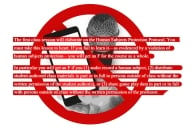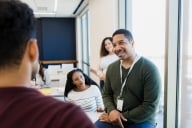You have /5 articles left.
Sign up for a free account or log in.
For close to three decades, freshman year at Bard College has begun in early August with three weeks of intensive reading, writing and discussion intended to introduce students to the intellectual life of a liberal arts college.
The mandatory but ungraded Language and Thinking Program is a way to shore up students’ skills and ignite their passions ahead of their first semester on the college's Annandale-on-Hudson, N.Y., campus. Reading assignments might include Franz Kafka’s Metamorphosis and a few dozen of the 20th century’s most famous poems.
But to many of the college’s faculty, and to Leon Botstein, who has been the college’s president since 1975, there was still something missing: a true introduction to science and scientific thinking for the vast majority of Bard’s students. “People who graduate in fields other than science often do not understand science,” he says. “They do not know what the limits of science are and what science can do. It’s catastrophic.”
Next January, Bard’s science and math faculty – along with postdoctoral students and faculty from other institutions -- will try to change all that with the Citizen Science Program, three weeks of science learning modeled on the success of Language and Thinking. Also required of all 500 of the college’s freshmen, and ungraded, Botstein hopes it will become similarly entrenched as a landmark of students’ first year at Bard.
“We'll give young people in their first year of college a real understanding of what science does, what it’s about,” he says, “rather than waiting for the senior year for students to fulfill a requirement.”
He adds: “The trouble is, you can teach a scientist to read Plato and Aristotle but taking a humanist or a person who wants to be a service provider -- social worker, social sciences, even economics -- and you want them to understand science.… It’s very hard.”
Mark Halsey, associate dean of the college and associate professor of mathematics, says Bard’s faculty had “been thinking for a long time about how to make science education work within the general curriculum.” The January session made sense as a means to “get the entire class as a community focusing on the same issues for three weeks … to prime them for a way of thinking, not an entire body of knowledge.”
Bard requires students to take one laboratory course in the life or physical sciences to graduate, as well as one in mathematics and computing. But, all too often, those classes are an afterthought for students who enter college thinking they don’t like science and math.
“We want to move away from that feeling of them just waiting until the last minute or being fearful of taking a science class,” says Brooke Jude, an assistant professor of biology and the Citizen Science Program’s director. “We want them to maybe pick out which class they want to take with a little less trepidation.”
Felicia Keesing, an associate professor of biology who is on the program’s advisory board, says the Citizen Science Program isn’t an acknowledgment of the college’s shortcomings in science education, but a way to do more. “It’s not as though we thought those standard courses were a failure, we just thought they were not sufficient, not enough to get our non-science students thinking scientifically.”
In its first year the program will focus on infectious diseases, which Jude says is “a subject that we think is tangible to everyone in the class,” whether because of their own experience contracting the H1N1 virus, witnessing a friend or family member contract a staph infection, or reading about cholera in the developing world.
Students will be divided into 24 sections of 20 or 21 students, which will rotate through three modules lasting four days each: one focusing on laboratory work, another on computer modeling, and a third looking specifically at tuberculosis.
One major goal, Jude says, is to “introduce all the different ways science its into daily life, not just taking a class in college and forgetting about it.” Researchers, physicians, science policy experts and journalists are likely to deliver lectures.
But the program won’t be dumbed down for a freshman class that is composed mostly of non-science majors. “We’re certainly not going to tier the sections into science and non-science students,” she says. “There’s a great benefit to students who don’t love science to be in a classroom with students who enjoy science, passing on the contagiousness.”
As enthusiastic as Bard’s science and math faculty are, Botstein acknowledges that there has been some resistance from faculty who don’t want to see more requirements added to the college’s curriculum, or who worried that the three-week session would replace the science course requirement.
An article in the February issue of the Bard Free Press, the college’s monthly student newspaper, calls the program “Botstein’s winter wonderland." It quotes a student government officer who says his “greatest objection is that it will keep students in school without a break longer than two weeks from August to May,” an objection the student says “is shared by certain high-level administrators, but has been expressly rejected by Botstein.”
Botstein admits that some faculty, students or parents may think “college freshmen are overworked or overburdened,” but insists that three more weeks of academic commitment isn’t an onerous requirement for the 17- to-19-year-olds in Bard’s freshman class. Students already have the option to spend January taking courses at other institutions, traveling with classes or doing internships, so this is just another -- albeit mandatory -- option.
He is also quick to note that the program has gotten the seal of approval from his brother David Botstein, a geneticist who founded Princeton University’s optional two-year core for science majors, the Integrated Science Program. Princeton’s president, Shirley M. Tilghman, a molecular biologist, is also supportive. "This is our way of attempting to solve the unsolved problem in the last 100 years of undergraduate education: the sciences."
Jude says that in addition to solving that problem, she hopes the program will get undergraduates thinking about science early enough that they still have a chance to explore it in college “and to maybe have that rare event of conversion.”








